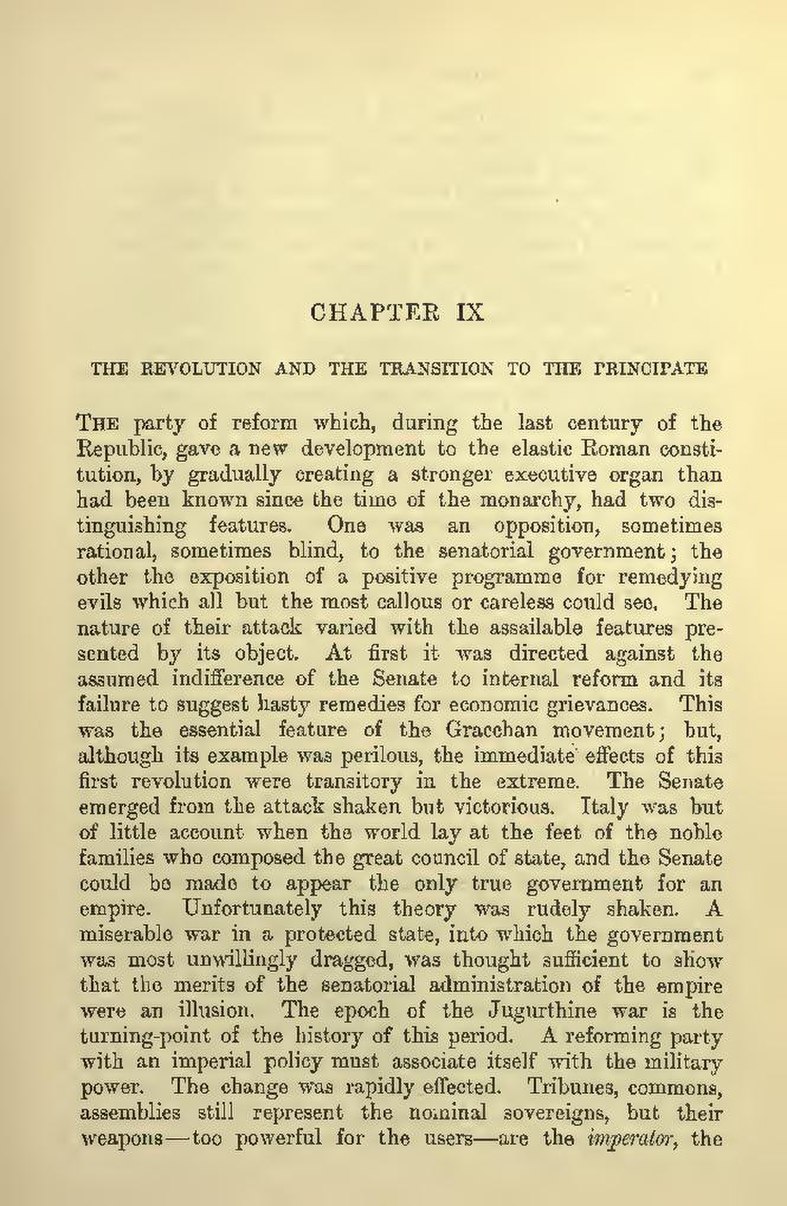CHAPTER IX
THE REVOLUTION AND THE TRANSITION TO THE PRINCIPATE
The party of reform which, during the last century of the
Republic, gave a new development to the elastic Roman constitution,
by gradually creating a stronger executive organ than
had been known since the time of the monarchy, had two distinguishing
features. One was an opposition, sometimes
rational, sometimes blind, to the senatorial government; the
other the exposition of a positive programme for remedying
evils which all but the most callous or careless could see. The
nature of their attack varied with the assailable features presented
by its object. At first it was directed against the
assumed indifference of the Senate to internal reform and its
failure to suggest hasty remedies for economic grievances. This
was the essential feature of the Gracchan movement; but,
although its example was perilous, the immediate effects of this
first revolution were transitory in the extreme. The Senate
emerged from the attack shaken but victorious. Italy was but
of little account when the world lay at the feet of the noble
families who composed the great council of state, and the Senate
could be made to appear the only true government for an
empire. Unfortunately this theory was rudely shaken. A
miserable war in a protected state, into which the government
was most unwillingly dragged, was thought sufficient to show
that the merits of the senatorial administration of the empire
were an illusion. The epoch of the Jugurthine war is the
turning-point of the history of this period. A reforming party
with an imperial policy must associate itself with the military
power. The change was rapidly effected. Tribunes, commons,
assemblies still represent the nominal sovereigns, but their
weapons—too powerful for the users—are the imperator, the
